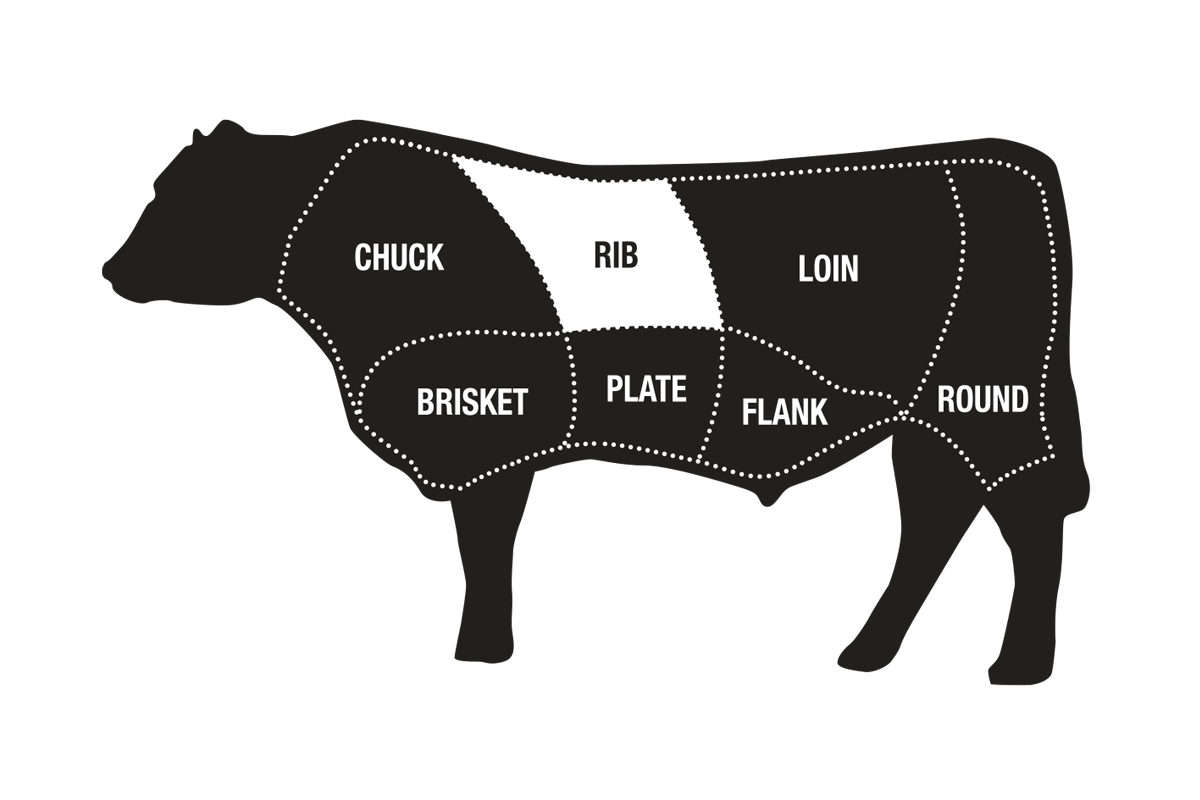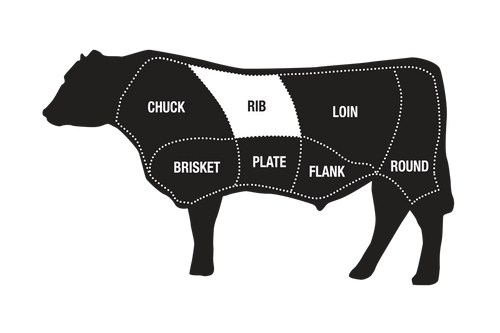Dry-Aged Tomahawk
Double R Ranch
The tomahawk steak is a deeply marbled ribeye with a long, exposed rib bone. Dry-aging concentrates the natural beef flavor for an unbelievable eating experience. Average weight is 2.5 lbs.
Namesake Brand
Cut by Master Butchers
Proprietary Dry-Aged Process
The tomahawk steak is a deeply marbled ribeye with a long, exposed rib bone. Each of our USDA Prime dry-aged tomahawk steaks is hand-cut to a thickness of about two inches. The element of dry-aging makes this exclusive cut an elite steak appropriate for the most exclusive grilling session.
To achieve these extraordinary results, we utilize our partner, Prime Food Distributor, and their proprietary system to control all factors from beginning to end. Lighting, airflow, humidity, temperature and cleanliness are carefully controlled to create an environment that produces the purest essence of beef. The outcome is a rich, full-flavored steak which provides a unique, pure eating experience.
Average weight: 2.5 lbs.
The two top USDA grades are Prime and Choice, which have the highest levels of marbling.
USDA Prime is the top grade on the USDA scale with the highest amount of marbling. Only 8 to 10% of all U.S. beef achieves this grade.
USDA Choice falls directly below USDA Prime. Choice beef is high quality and has less marbling but offers an excellent value.

Details
The tomahawk steak is a deeply marbled ribeye with a long, exposed rib bone. Each of our USDA Prime dry-aged tomahawk steaks is hand-cut to a thickness of about two inches. The element of dry-aging makes this exclusive cut an elite steak appropriate for the most exclusive grilling session.
To achieve these extraordinary results, we utilize our partner, Prime Food Distributor, and their proprietary system to control all factors from beginning to end. Lighting, airflow, humidity, temperature and cleanliness are carefully controlled to create an environment that produces the purest essence of beef. The outcome is a rich, full-flavored steak which provides a unique, pure eating experience.
Average weight: 2.5 lbs.
Cooking Tips
Beef Grading
The two top USDA grades are Prime and Choice, which have the highest levels of marbling.
USDA Prime is the top grade on the USDA scale with the highest amount of marbling. Only 8 to 10% of all U.S. beef achieves this grade.
USDA Choice falls directly below USDA Prime. Choice beef is high quality and has less marbling but offers an excellent value.








